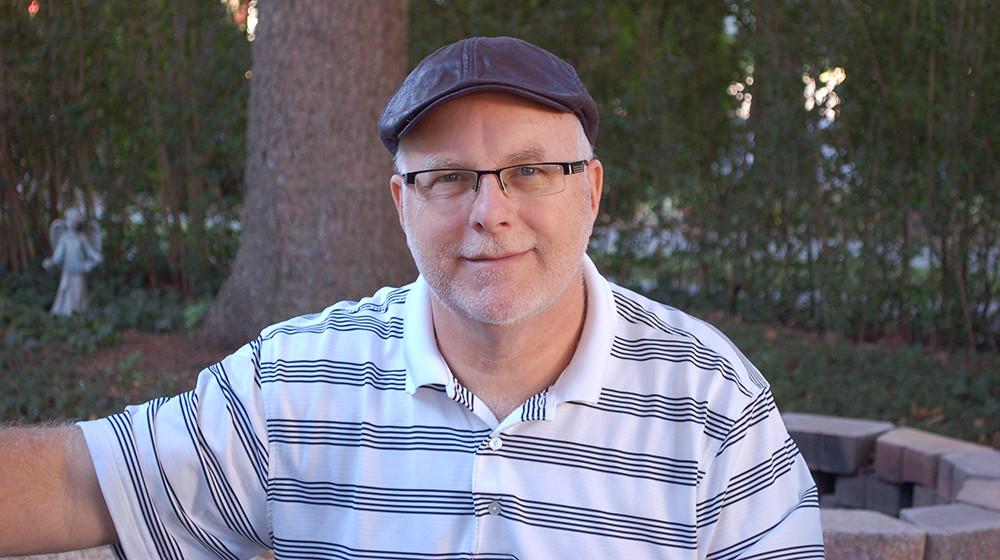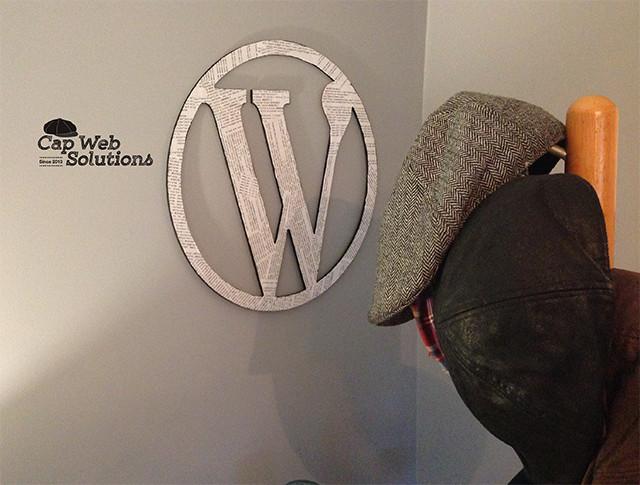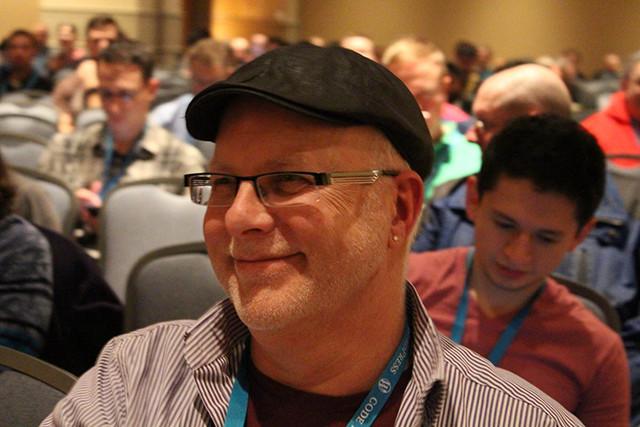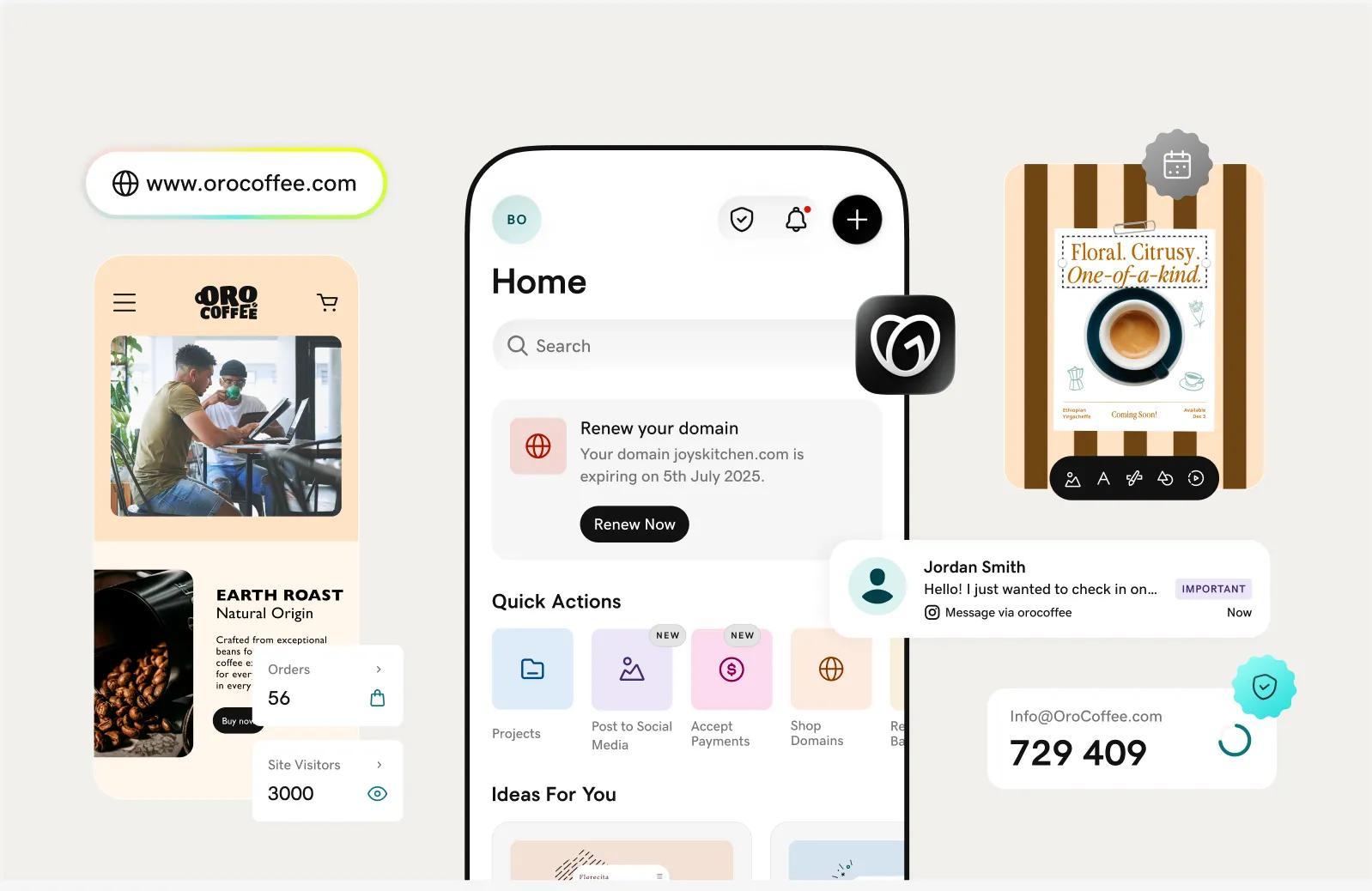Matt Ryan is the Founder & CEO of Cap Web Solutions, a small WordPress development firm based in Downingtown, Pa. After parting ways with his longtime employer in August 2012, Matt jumped head first into learning WordPress and helping very small businesses get their sites online as a professional WordPress developer.
What inspired you to start Cap Web Solutions?
It was a parting of the ways with a longtime employer that put me on this track. I knew I wanted to work for myself. I was really tired of having someone else hold the reins of my income source in their hands. The biggest part of the decision was what to do.
What really confirmed my decision to move ahead with WordPress development was the reception I received from a small group of WordPress enthusiasts who meet monthly under the Twitter moniker of @burbswp.
I signed up through Meetup.com for the May meeting of the group in 2014. I never used Meetup.com before. I hadn’t professionally done any website development or programming at all for the better part of 20 years, but with the encouragement of my wife, I went to the meetup.
I sat in the back corner of a scrappy meeting room off to the side of a deli in King of Prussia, Pa. and met some wonderful WP folks. This was my first WordPress meetup. Step one done. I decided that this community was one I wanted to participate in.
The next day, I filed the needed forms to incorporate my LLC, bought a domain name, set up email, and was on my way. I then scheduled a session with the local SCORE office and had a great meeting to help me get started writing my business plan. Lucky for me, the local SCORE office was about to begin an intensive, four-week workshop program at the local library on putting together business plans. I signed up.
Next was the bank for a business bank account. Within about six weeks, I formally launched the company. July 1, 2014 — my own personal Independence Day.
What obstacles did you face? How did you overcome them?
My wife and I had owned and operated a shipping franchise back in the late 90s. While we ended up closing the business after two years in operation, I learned a great deal about operating a business. This time, though, there would be no employees other than myself and no rented space or equipment.
I had been doing websites casually for a few years and started where a number of soon-to-be-pros start — with their local church or volunteer organization. I converted my church’s website from a older, static, HTML-based design to a WordPress site. I gave it to the church. I then started to use that as a springboard to talk to friends and let them know about my new business.
I talked about my business to anyone who would listen.
Two small business owners took the risk and hired me to build their websites, and hence I joined the ranks of newbie WordPress developers building $500 websites. Excited? Yes. Overwhelmed? Yes. Had it under control? No.
Initially, I didn’t have to do outbound marketing. Most of my friends knew of my employment situation, so the topic of “how’s the job search going?” came up frequently. I was able to reply and segue into my new business speech. My first five paying website projects came out of this.
Are you focusing on serving a niche with your business?
My niche is still something I’m trying to define. Initially, I wanted to work with three groups: very small businesses, religious organizations and individuals in transition (people changing jobs, out of work, etc.).
I soon found that two of the three groups — religious affiliations and individuals in transition — had either very little or no budget to speak of.
While I wanted to focus on these two, I just couldn’t support the extended discussion period involved with working with religious organizations (committees, volunteers, “my-son-can-do-that-for-free”), or the very tight cash flow challenges of the transitioners. I knew both of these situations well — I was a participant in both.
I gradually moved to focus entirely on very small existing businesses or small startups. Small being defined as one to three employees. This type of business had no IT specialists, but had an idea and lots of enthusiasm for where they wanted to go. I liked that and felt empowered by it.
What’s your business model?
I build WordPress websites for very small businesses. Website development takes the client’s existing design — or something we come up with together — and runs it completely through the website development cycle to launch.
They typically already have a domain and an idea. I help them to evolve that idea into a website design. I don’t consider myself a designer — I rely on the client for the design or direct the client to existing themes for design ideas. Once we agree on the overall look and feel, we are off and running.
I do all of my development using the Genesis Framework from StudioPress. I recreate the design as a custom Genesis child theme. It will serve them for as long as they need.
I really like to do eCommerce sites, and I’ve put together a number of WooCommerce-based shops. I like the challenges and the customization that I can weave into the operations of the online store.
What about maintenance and ongoing services?
I provide ongoing website care plans on a monthly basis for development clients and other WordPress website owners. I provide small project services to clients who are on one of my website care plans.
The small project services enable me to add features and functionality to existing websites as their owners expand services and offerings.
The care plans I offer cover all the necessary behind-the-scenes tasks.
WordPress core, theme and plugin updates. Regular backups. Security scanning. These things are needed to keep a WordPress site up and running smoothly and securely. I cover stuff like that, as well as daily “tiny tasks,” for minor tweaks and updates.
What’s a “tiny task”?
A tiny task is something that I can accomplish in about 30 minutes. If I don’t think it’s a tiny task, I let the site owner know how long it should take and quote the small project as an hourly add-on project to their monthly care plan.
Can you tell us more about your monthly care plans?
Care plan subscribers are a big source of follow on development work — stuff I love to do. Monthly website care subscribers allow me to keep the doors open and meet the minimum financial requirements — so long as the number of active subscribers stays at or above the right level. For me, that number is 12 to 15. Once I get above that number, I need to bring in help to manage the help desk. That raises costs — not something I look forward to.
Tell us about your business goals.
My business goal is simple. As empty nesters, I want to provide an adequate income for myself so that my wife and I can enjoy our time together. We both work hard at our professions, and we want to get back to a point where we can have a good lifestyle.
Things were going very well for us before 2012, and while we don’t need to return to that level of income, we do want to be able to enjoy a vacation or two every year.
I’m not looking to expand the business and take on employees or have a brick-and-mortar presence. I want to stay engaged with customers for the long term, helping them to grow their business and be a business partner. Specifically, I’d like to have 15 website care plan customers and one new development project each month. That would make me happy and feel comfortable.
Goals and philosophy
What’s your guiding philosophy in business?
Three words: “Matt can help.” I want to help small businesses and individuals succeed online by creating a base from which they bring their talents to market. Let me build your website, so you can build your platform.
What strengths do you bring to the table?
I ran a franchise business before — it was a retail presence in a strip mall. Lots of face-to-face customer interaction. I learned to take feedback and provide solutions at a reasonable cost.
Personally, I’m more settled in my life right now — more confident in myself and my ability to weather storms. I meditate somewhat regularly to center my mind and help me see what is most important. I have embarked on living a minimalist lifestyle, and I feel that it helps me to see past the distractions to find what really matters. I feel that I am able to help my clients see their way through, too.
Where do you see yourself in five or ten years?
In five years, I want to be comfortably experiencing the goals set forth above, with 15 care subscribers and one new development project a month. I want to be scheduling those projects two to three months ahead AND to have learned how to keep client projects moving forward.
In ten years, well, I expect to be semi-retired from full-time website work. Maybe four or five complete development projects a year with a few larger feature additions thrown in. I want to be able to still bring creative ideas to life and help people get their start online, but the day-to-day website care responsibilities will have moved to someone else.
Products and tools
What tools help you keep your business running?
The majority of my leads these days come in through GoDaddy’s Pro Connect program. With my profile online and searchable by GoDaddy customers, I receive email requests for new development projects.
The GoDaddy Pro dashboard enables me to securely access my client websites, get access to FTP accounts, and dig into the WordPress database through phpMyAdmin. Have you ever tried to get this stuff from a client? In most cases, they have no clue what any of this is. GoDaddy makes it a pleasure to onboard a new client and work the back end of the website.
Evernote is my electronic brain. I’ve been using it since 2010 and have had a premium account for the last four years. Everything that comes in front of me goes in there, and I use it to create and share documentation with my clients. Win-win. I can take a screenshot of a website, annotate it, and send it to the client for input. I can grab a shot of the dashboard and walk them through adding their own new content to their website.
I use Toggl as my time tracker. I’m able to log any time I spend on client projects, helpdesk tickets for Cap Web WordPress care customers and business operations. All of this from any of my devices. Weekly reports allow me to create invoices and recall what I did. I am able to export detailed reports of time spent on client projects — a huge benefit for hourly billing engagements. Most of my custom development projects are fixed fee, so the client doesn’t see that detail. It does help me to do a sanity check to make sure I’m charging reasonably for the project.
Wunderlist is my to-do tracker and task list. I’ve tried a number of services, but the simplicity of a list-based interface just works for me. I can keep track of what I need to do on a project-by-project basis and things I’ve assigned to my clients. I use the free level now, but expect to upgrade before the end of the year.
Finding time to enjoy life
How do you unwind?
I like to walk through the small town I live in and ride my bike on the converted railroad trails. I thoroughly enjoy cooking — grilling over charcoal is the best — and coffee is my crutch. Dunkin’ Donuts Dark Roast is my favorite.
Was there a turning point that led you down this path?
The turning point would have to be when I was unexpectedly separated from my longtime employer back in August 2012. It was a big smack in the side of the head — I let my life get way too wrapped up in my job and the company I was working for, and I had failed to maintain other interests.
How are you finding work/life balance since starting your own business?
As a new business, I struggle with the work/life balance. I do work a lot of hours and spend a lot of time at the keyboard. My wife is understanding. She wants me to succeed almost as much as I want it.
That being said, I do have scheduled time on my calendar every week for date night, forcing me to turn everything off and put down the electronics while she and I enjoy time together. It might be just making homemade pizza on a Friday night or enjoying an outdoor concert in town, but it’s something we do together to maintain the connection.
Final thoughts
What’s the most valuable lesson you’ve learned since starting Cap Web Solutions?
I’d have to say that it is okay to not take every opportunity you come across. There are some business relationships that really just don’t work and for the sake of all parties. It’s okay to say, “I don’t think I’m a good fit for you on this project.”
Learn to say no.
Lesson two — when doing work for friends and family, you still need to have a written scope of work and an agreed-on “done” point. Just sayin’.
Any words of advice for other aspiring entrepreneurs?
Write a business plan, then have someone knowledgeable you trust review it and provide feedback. Use it, review it regularly, revise as needed, and then repeat. Working ON your business — not just IN your business — is critical to its success.
Thanks to Matt Ryan for taking the time to share his story with us. You can find Matt’s work on the Cap Web Solutions website and follow Cap Web Solutions on Twitter, Facebook and LinkedIn. You can also connect with Matt directly on Twitter, Facebook and LinkedIn.









